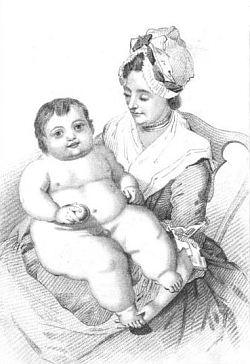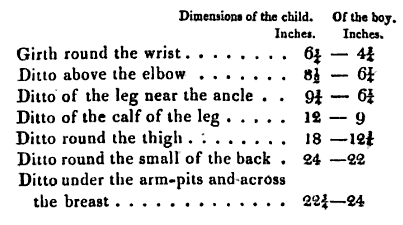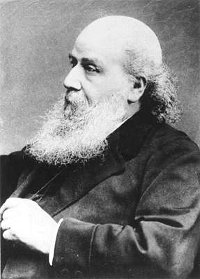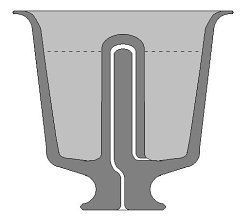This is rather romantically obscure: On June 18, 1829, a stranger arrived on the American side of Niagara Falls and took a room at a local hotel. His name was Francis Abbott, and after viewing the falls he declared himself so enchanted that he extended his stay from a few days to a week, and then to a month. Eventually he took up residence in an old cottage on Goat Island, where he lived alone contemplating the falls for some 20 months. Occasionally he could be seen walking precariously along a single beam of timber that projected over the flood at the Terrapin Bridge. On June 10, 1831, he disappeared while bathing in the water, and on June 21 his body was discovered downstream at Fort Niagara.
Abbott had shunned society increasingly, but the villagers who had interacted with him could assemble a picture. He was an English gentleman of a finished education, skilled in music and drawing, and had visited Egypt, Palestine, Turkey, Greece, Italy, Spain, Portugal, and France. He wrote in Latin but destroyed his compositions. When the villagers investigated his hut they found his dog at the door and his cat on the bed; his guitar, his violin, flutes, and music books were scattered about, but his portfolio and the leaves of a large book were blank.
“What, it will be asked, could have broken up and destroyed such a mind as Francis Abbott’s?” asked the New York Mirror. “What could have driven him from the society he was so well qualified to adorn — and what transform him, noble in person and in intellect, into an isolated anchorite, shunning the association of his fellow-men? The history of his misfortunes is not known, and the cause of his unhappiness and seclusion will, undoubtedly, to us be ever a mystery.”






